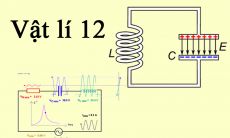Read the following passage and mark the letter A, B, C or D on your answer sheet to indicate the answer to each of the questions
In 1900 the United States had only three cities with more than a million residents-New York, Chicago, and Philadelphia. By 1930, it had ten giant metropolises. The newer ones experienced remarkable growth, which reflected basic changes in the economy. The population of Los Angeles (114,000 in 1900) rose spectacularly in the early decades of the twentieth century, increasing a dramatic 1,400 percent from 1900 to 1930.
A number of circumstances contributed to the meteoric rise of Los Angeles. The agricultural potential of the area was enormous if water for irrigation could be found, and the city founders had the vision and dating to obtain it by constructing a 225-mile aqueduct, completed in 1913, to tap the water of the Owens River. The city had a superb natural harbor, as well as excellent rail connections. The climate made it possible to shoot motion pictures year-round; hence Hollywood. Hollywood not only supplied jobs; it disseminated an image of the good life in Southern California on screens all across the nation. The most important single industry powering the growth of Los Angeles, however, was directly linked to the automobile. The demand for petroleum to fuel gasoline engines led to the opening of the Southern California oil fields, and made Los Angeles North America's greatest refining center. Los Angeles was a product of the auto age in another sense as well: its distinctive spatial organization depended on widespread private ownership of automobiles. Los Angeles was a decentralized metropolis, sprawling across the desert landscape over an area of 400 square miles.
It was a city without a real center. The downtown business district did not grow apace with the city as a whole, and the rapid transit system designed to link the center with outlying areas withered away from disuse. Approximately 800,000 cars were registered in Los Angeles County in 1930, one per 2.7 residents. Some visitors from the east coast were dismayed at the endless urban sprawl and dismissed Los Angeles as a mere collection of suburbs in search of a city. But the freedom and mobility of a city built on wheels attracted floods of migrants to the city.
Câu 28 : What is the passage mainly about?
Hãy suy nghĩ và trả lời câu hỏi trước khi xem đáp án
Lời giải:
Báo saiBài đọc chủ yếu thảo luận về điều gì?
A. Sự phát triển của các thành phố ở Mỹ vào đầu những năm 1900
B. Sự phát triển của các mỏ dầu phía Nam California
C. Các yếu tố góp phần vào sự phát triển của Los Angeles
D. Quy hoạch thành phố và công nghiệp ở Los Angeles
Dẫn chứng: A number of circumstances contributed to the meteoric rise of Los Angeles. The agricultural potential of the area was enormous... The city had a superb natural harbor, as well as excellent rail connections... The most important single industry powering the growth of Los Angeles, however, was directly linked to the automobile. (Một số điều kiện đã góp phần vào sự phát triển của Los Angeles. Tiềm năng nông nghiệp của khu vực này rất lớn... Thành phố có một bến cảng tự nhiên tuyệt vời, cũng như các tuyến đường sắt tuyệt vời... Tuy nhiên, ngành công nghiệp đơn lẻ quan trọng nhất thúc đẩy sự phát triển của Los Angeles, có liên quan trực tiếp đến ô tô.)
→ Chọn đáp án C
Câu 29 : The word"it" in paragraph 1 refers to ______.
Hãy suy nghĩ và trả lời câu hỏi trước khi xem đáp án
Lời giải:
Báo saiTừ "it" trong đoạn 1 đề cập đến ______.
A. Chicago
B. New York
C. Hoa Kỳ
D. Philadelphia
Căn cứ vào nghĩa của câu:
In 1900 the United States had only three cities with more than a million residents-New York, Chicago, and Philadelphia. By 1930, it had ten giant metropolises. (Năm 1900, Hoa Kỳ chỉ có ba thành phố với hơn một triệu cư dân - New York, Chicago và Philadelphia. Đến năm 1930, nó có mười đô thị khổng lồ.)
→ Chọn đáp án C
Câu 30 : The author characterizes the growth of new large cities in the United States after 1900 as resulting primarily from ______.
Hãy suy nghĩ và trả lời câu hỏi trước khi xem đáp án
Lời giải:
Báo saiTác giả mô tả sự phát triển của các thành phố mới to lớn ở Mỹ sau năm 1900 chủ yếu do _________.
A. điều kiện kinh tế mới
B. hình ảnh các thành phố được chiếu trong phim
C. các kĩ thuật nông nghiệp mới
D. dân số di cư lớn
Dẫn chứng: In 1900 the United States had only three cities with more than a million residents- New York, Chicago, and Philadelphia. By 1930, it had ten giant metropolises. The newer ones experienced remarkable growth, which reflected basic changes in the economy. (Năm 1900 Hoa Kỳ chỉ có ba thành phố với hơn một triệu cơ dân - New York, Chicago và Philadelphia. Đến năm 1930, nó có mười đô thị khổng lồ. Những cái mới hơn đã tăng trưởng đáng kể, phản ánh những thay đổi cơ bản trong nền kinh tế.)
→ Chọn đáp án A
Câu 31 : The word "meteoric" in paragraph 2 is closest in meaning to ______.
Hãy suy nghĩ và trả lời câu hỏi trước khi xem đáp án
Lời giải:
Báo saiTừ “meteoric” trong đoạn 2 gần nghĩa nhất với _________.
A. nhanh chóng
B. nổi tiếng
C. có thể gây tranh luận
D. có thứ tự
“A number of circumstances contributed to the meteoric rise of Los Angeles” (Một số yếu tố đã góp phần vào sự phát triển nhanh chóng của Los Angeles”)
Do đó: meteoric ~ rapid
→ Chọn đáp án A
Câu 32 : It can be inferred from the passage that in 1930 the greatest number of people in the Los Angeles area were employed in .........
Hãy suy nghĩ và trả lời câu hỏi trước khi xem đáp án
Lời giải:
Báo saiChúng ta có thể suy ra từ bài đọc rằng vào năm 1930 số lượng người lớn nhất ở vùng Los Angeles được thuê _________.
A. làm nông nghiệp B. lọc dầu
C. sản xuất ô tô D. vào công nghiệp điện ảnh
Dẫn chứng: The demand for petroleum to fuel gasoline engines led to the opening of the Southern California oil fields, and made Los Angeles North America’s greatest refining center. (Nhu cầu xăng dầu để làm nhiên liệu cho động cơ xăng dẫn đến việc khai thác các mỏ dầu ở Nam California, và tạo ra trung tâm lọc dầu lớn nhất của Los Angeles Bắc Mỹ.)
→ Chọn đáp án B
Câu 33 : According to the passage, the Southern California oil fields were initially exploited due to______.
Hãy suy nghĩ và trả lời câu hỏi trước khi xem đáp án
Lời giải:
Báo saiTheo đoạn văn, các mỏ dầu ở Nam California ban đầu được khai thác do _______.
A. yêu cầu nhiên liệu của hệ thống đường sắt Los Angeles
B. sự gia tăng việc sử dụng động cơ xăng ở Bắc Mỹ
C. mong muốn đưa vùng đất sa mạc kém hiệu quả vào sử dụng tốt
D. lập kế hoạch đổi mới từ phía những người sáng lập thành phố
Dẫn chứng:
The demand for petroleum to fuel gasoline engines led to the opening of the Southern California oil fields, and made Los Angeles North America's greatest refining center. (Nhu cầu xăng dầu để cung cấp nhiên liệu cho động cơ xăng đã dẫn đến việc mở các mỏ dầu ở Nam California, và trở thành trung tâm lọc dầu lớn nhất Bắc Mỹ của Los Angeles.)
→ Chọn đáp án B
Câu 34 : It can be inferred from the passage that the spatial organization of Los Angeles contributed to the relative decline there of________.
Hãy suy nghĩ và trả lời câu hỏi trước khi xem đáp án
Lời giải:
Báo saiCó thể suy ra từ đoạn văn rằng tổ chức không gian của Los Angeles đã góp phần vào sự suy giảm tương đối ở đó của ________.
A. giao thông công cộng
B. khu công nghiệp
C. vùng lân cận ngoại ô
D. mỏ dầu
Dẫn chứng: Los Angeles was a product of the auto age in another sense as well: its distinctive spatial organization depended on widespread private ownership of automobiles. Los Angeles was a decentralized metropolis, sprawling across the desert landscape over an area of400 square miles. (Los Angeles cũng là một sản phẩm của thời đại ô tô theo một nghĩa khác: tổ chức không gian đặc biệt của nó phụ thuộc vào sở hữu tư nhân rộng rãi đối với ô tô. Los Angeles là một đô thị phi tập trung, sắc màu rực rỡ dọc theo dải đất sa mạc trên diện tích 400 dặm vuông.)
→ Chọn đáp án A
Câu 35 : The visitors from the east coast mentioned in the passage thought that Los Angeles ______.
Hãy suy nghĩ và trả lời câu hỏi trước khi xem đáp án
Lời giải:
Báo saiNhững du khách từ bờ biển phía đông được đề cập trong bài đọc nghĩ rằng Los Angeles _________.
A. không được miêu tả đúng bởi các hình ảnh Hollywood
B. thiếu các khu vực ngoại ô tốt để sống
C. có dân số quá lớn
D. không thực sự là một thành phố
Dẫn chứng: Some visitors from the east coast were dismayed at the endless urban sprawl and dismissed Los Angeles as a mere collection of suburbs in search of a city. (Một số du khách từ bờ biển phía đông đã bị khủng hoảng khi sống ở khu vực đô thị hóa và bỏ quên Los Angeles như một bộ sưu tập ngoại ô chỉ để tìm kiếm một thành phố.)
→ Chọn đáp án D
Đề thi HK1 môn Tiếng Anh 12 năm 2021-2022
Trường THPT Nguyễn Huệ














